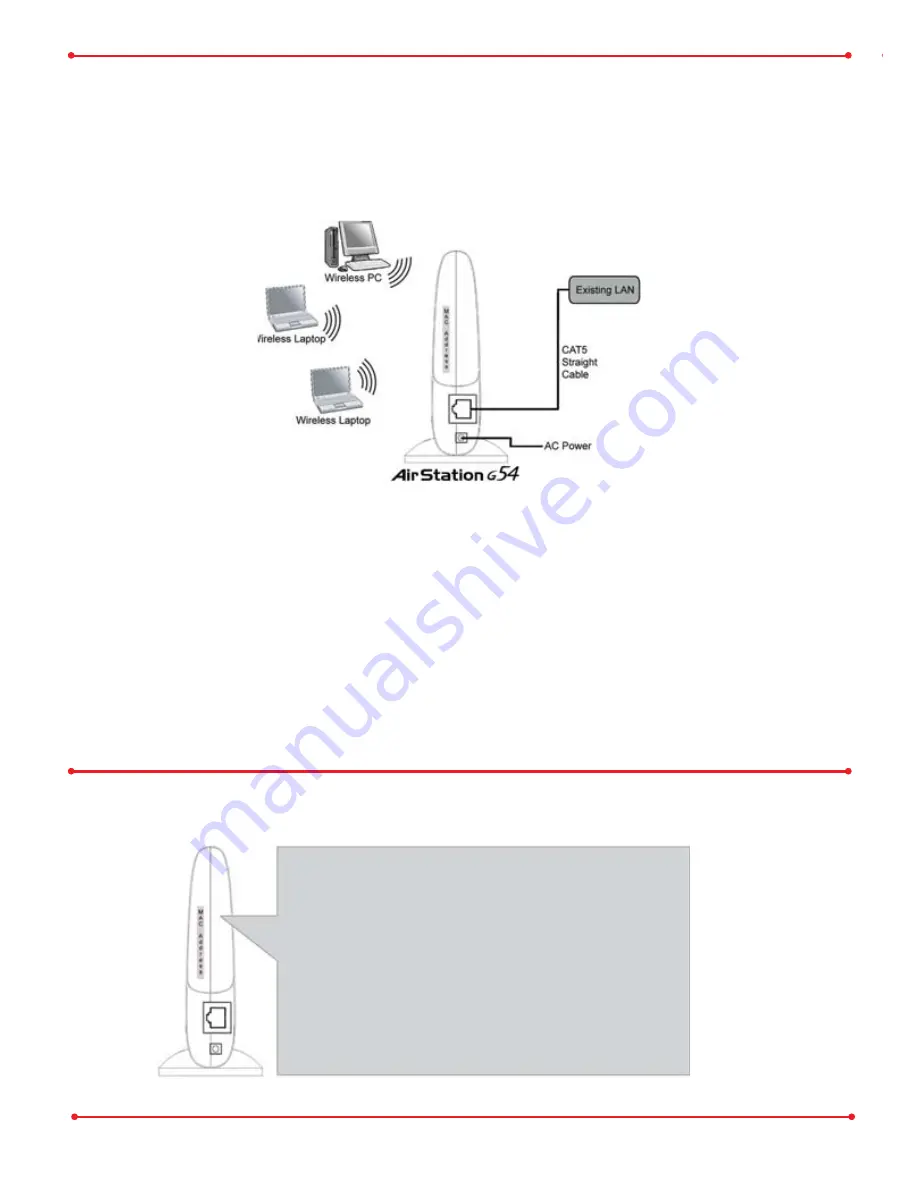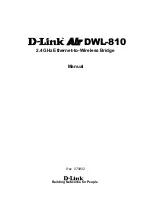
6
This completes the basic
AirStation Configuration
. To change advanced settings
consult the User Manual located on the Utility CD or the Buffalo Support Web Site:
http://www.buffalotech.com/wireless/support
.
Connect the AirStation to your existing LAN
Once configuration is complete, connect the AirStation to your existing Local Area
Network. Plug the provided 7ft. Ethernet cable into the 10/100M Ethernet port on
the
AirStation 54Mbps Compact Repeater Bridge
and plug the other end
into an Ethernet hub or switch on your Local Area Network.
MAC Address for WDS Mode
The
Wireless MAC address
is a 12-
digit code comprised of numbers and let-
ters and is located on the rear of the
AirStation.
The
Wireless MAC Address
is used for
WDS functionality.
Once the
AirStation
is connected to the existing LAN, users accessing the
LAN through the
AirStation
must configure the computer’s TCP/IP Settings to
match your existing LAN.
Contact your network administrator if your computer requires a static IP
Address or if using DHCP Services.

























